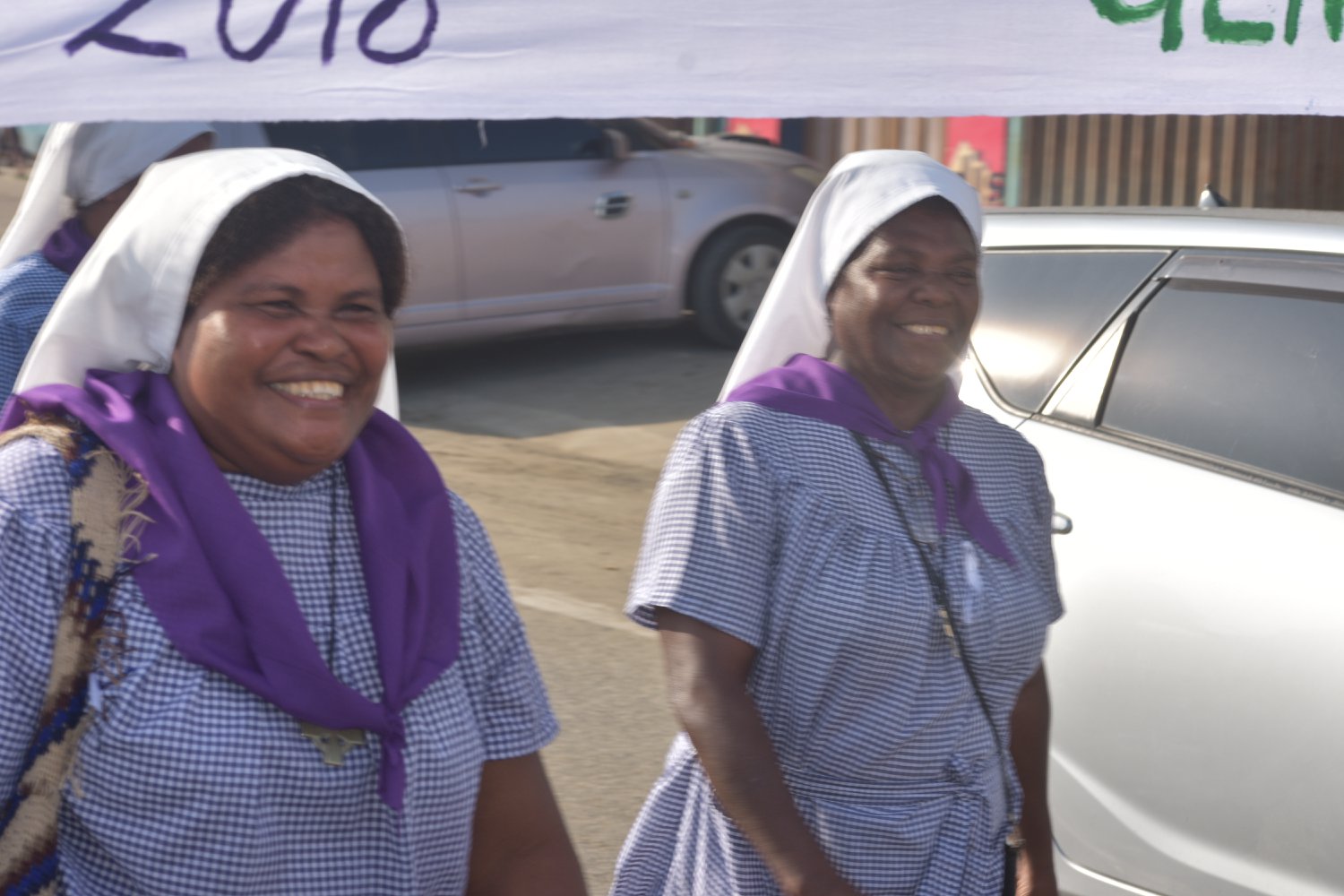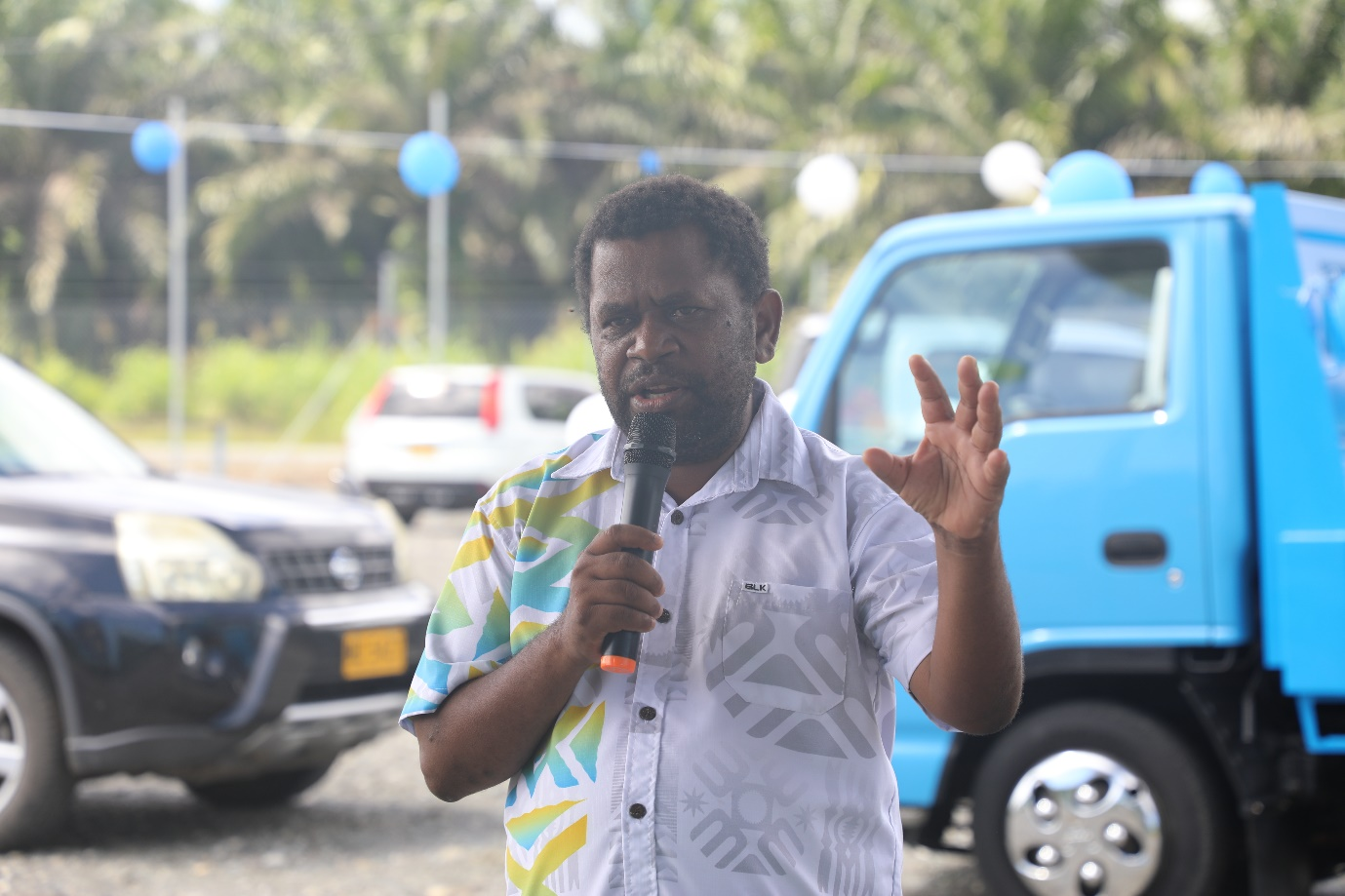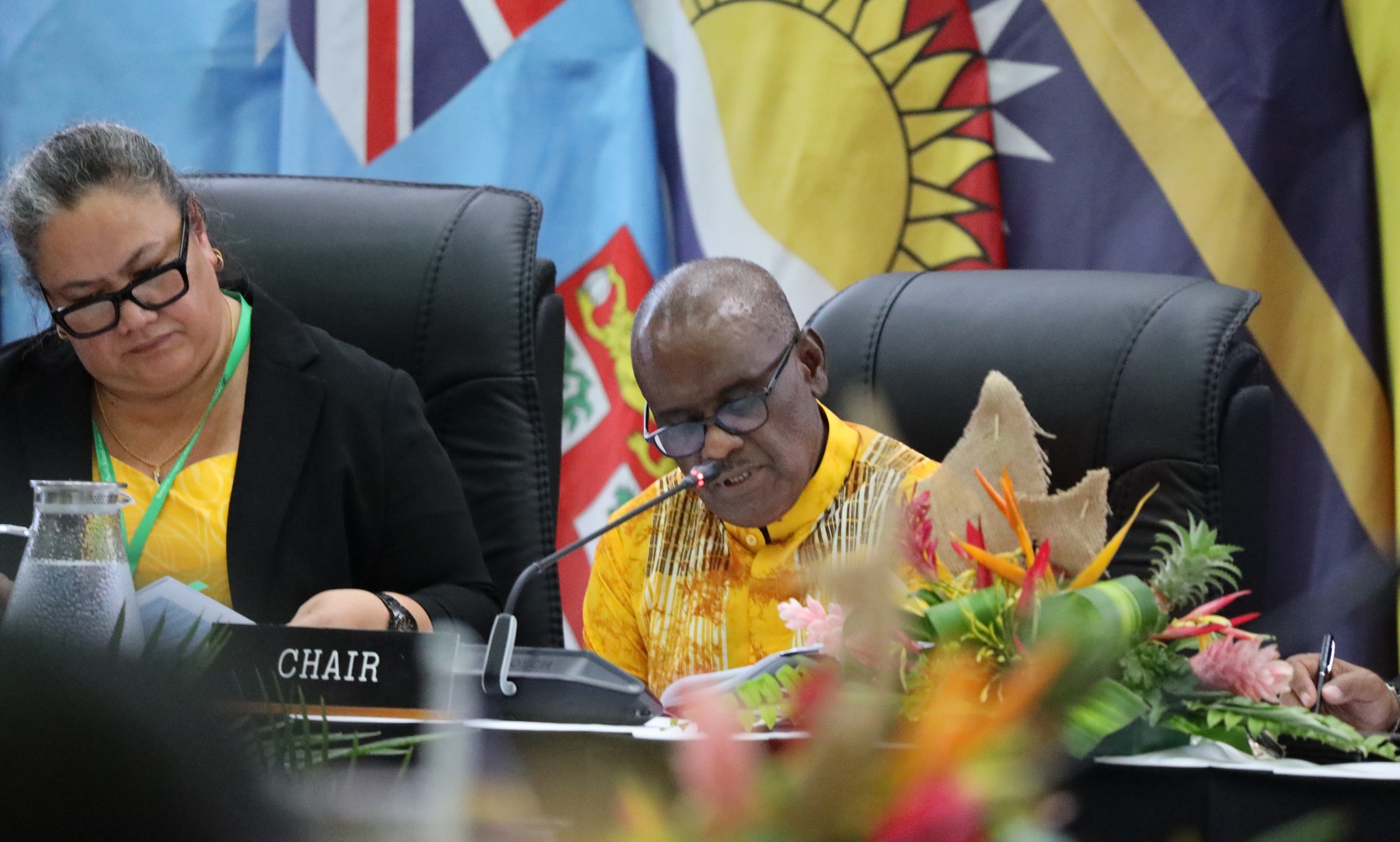By SAPT STAFF
At the end of a bumpy road in the far east of Honiara, the capital of Solomon Islands is a heavily padlocked steel gate seem like an entry to a prison compound. It is not. It is Christian Care Centre (CCC) – a sanctuary, safe haven and happy place for women and their children escaping abuse.
The centre is far, secured, well-cared-for lawns and peaceful surroundings.
Short walk to the seafront is a beautiful beach where victims of domestic and sexual violence get a breather from their trouble world.
The centre is the only one of its kind in the Solomon Islands with 24 hours service.
It has 20 rooms that can accommodate up to 40 victims and their children.
Sister Ruth, one of the sisters who is responsible for looking after the victims said, the centre welcomes all victims of all forms of abuse and violence.
She said CCC is more than a safe haven for victims to stay away from their predators.
“We have qualified counselors to help victims regain their life and meetings with the perpetrators can be organised to help in the healing process.
“We also have programs for the women and girls to build their confidence so that when they get out of this here, they can do things for themselves rather relying on the husband for survival.
“There is also program for children. Children who stayed longer in the center were also given the opportunity to attend regular classes,” Sister Ruth said.
She said cases presented to the Center varies from short term to long term depending on the seriousness of respective cases.
“Those with minor issue can return to their home overnight but if a case is reported to police, victims will depend on police investigation before they go home,” Sister Ruth explained.
She said women and girls who have been exposed to violence prefer not to speak about their issue in fear of reprisal when they get out of the Center.
“They believe that if they speak out it will affect their children as in many cases the father is the only bread winner for the family.
“We want abused women to know they should speak up, and we want their relatives and friends to speak up,” she said.
The Solomon Islands is rated as one of the world’s worst for domestic and sexual violence.
According to a recent World Bank report about 64 percent of women report they’re victims of domestic violence.
Andrew Mason, the author of the 2012 World Bank report, which was launched in Honiara, said sexual violence was bad across the Pacific but worst in the Solomon. “Usually you see physical violence being more prevalent than sexual violence. The only country that’s an exception for the data that we have is Solomon Islands.”
He said the Solomon Islands was rated just behind Kiribati in overall levels of domestic violence.
“It means that societies in the Pacific have a higher tolerance for men abusing their spouses.
And in fact what’s interesting is that it’s a culture that includes not only male views, but female views.
One thing we find which was surprising and a bit disturbing frankly, is that 70 per cent of women in the Solomon Islands also say that under certain circumstances that husbands beating their wives is acceptable.” Following the report, the family protection act was passed.
The alarming statistics on family violence has led to The National Policy on Eliminating Violence Against Women which was launched when Derek Sikua was prime minister.
It was developed to help the country respond to the serious and widespread problem of violence against women.
“We must do something to solve this problem because this problem is serious and because of the mandates for peace and equality in our nation’s Constitution, and in several of the international agreements that have been ratified by our Parliament,” the policy said.
“Violence against women (VAW) is any form of violence against women that does, or is likely to, result in physical, sexual or psychological harm or suffering, including threats of violence and arbitrary deprivation of liberty. These forms include a number of specific acts of violence that are indicated in the policy.”
The policy has four guiding principles and values: Zero tolerance of violence; recognition of women’s rights; the shared responsibility for eliminating VAW; and achieving gender equality.
“These four principles and values guide our response to seven key strategic areas: Developing national commitments to eliminate VAW; strengthening legal frameworks, law enforcement and justice systems; eliminating and preventing VAW through public awareness and advocacy; improving protective, social and support services; treating perpetrators; working with men to end VAW; and coordinating this policy with related policies and coordinating VAW-elimination services with each other and with this policy.”
While family violence is common in the Solomon Islands, it is regarded as a serious crime. “It is not just an issue for women. It is not just a policing matter. It is a matter for all of Solomon Islanders, for governments, for communities, for churches, leaders and chiefs, for donors and civil society,” said a recent report by RAMSI.
Sr Ruth agrees that there is no country in the world free of violence against women, abuse happens, and sometimes women don’t talk.
“People in this part of the world may not talk out of fear or not knowing what kind of support they can get, at the end, it’s up to the woman but it also comes down to family and friends being supportive,” she said.
Sr Ruth agrees that abuse comes in many forms and from different people.
“There are many other types that are just as harmful and that is the reason why the safe havens like Christian Care Centre is important,” she said.
The centre, or CCC, is an Anglican Church joint venture run by the Sisters of the Church and the Sisters of Melanesia to provide care for victims of domestic violence and other forms of abuse.
It is a place so far away, but still closer to the hearts of abused women who have nowhere else to turn to.
They care for many including women and children who are victims of broken marriages or single women with personal problems. “We are happy that through the power of God these victims are healed,” said the center sisters.












